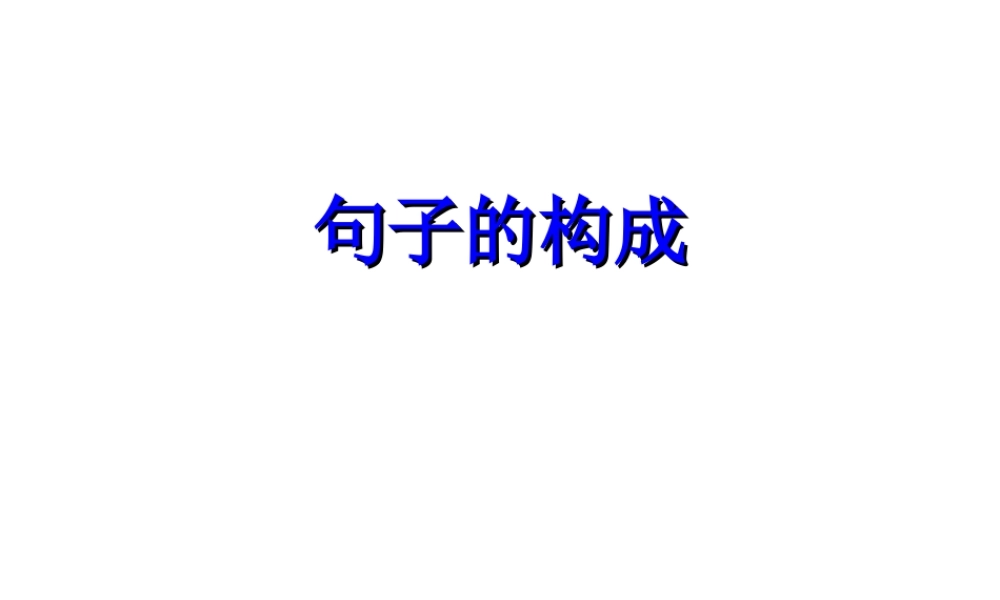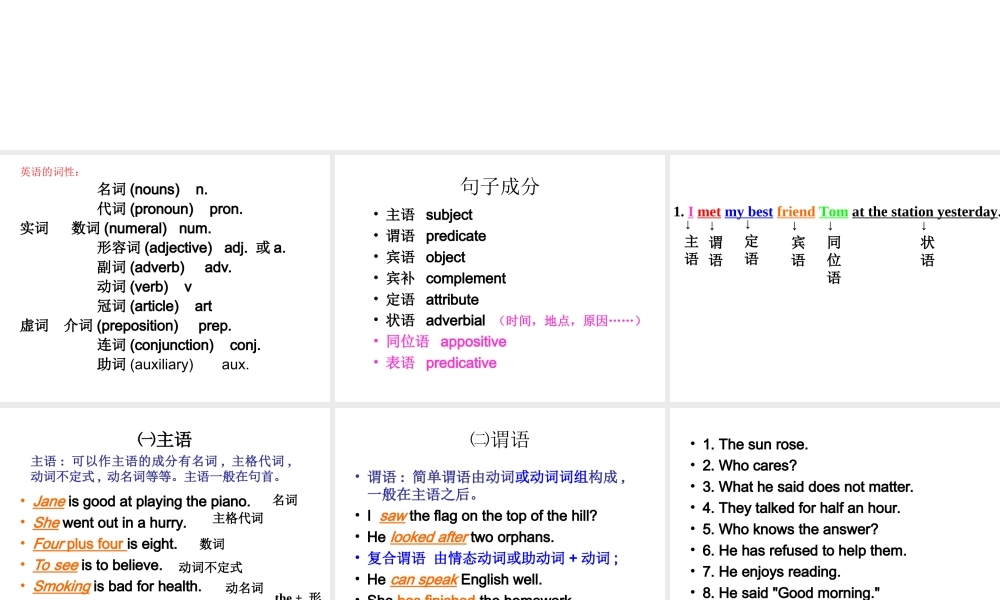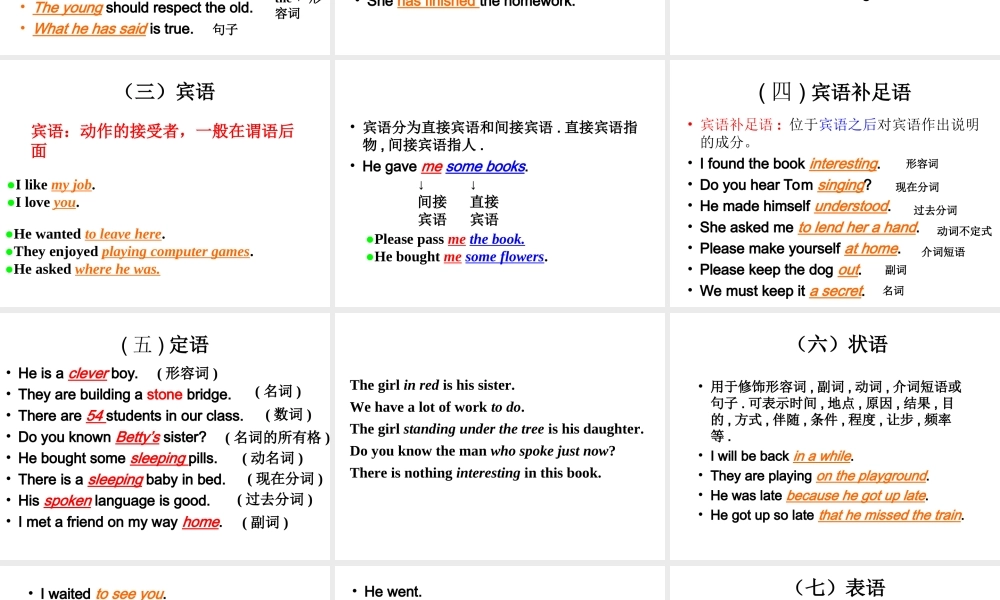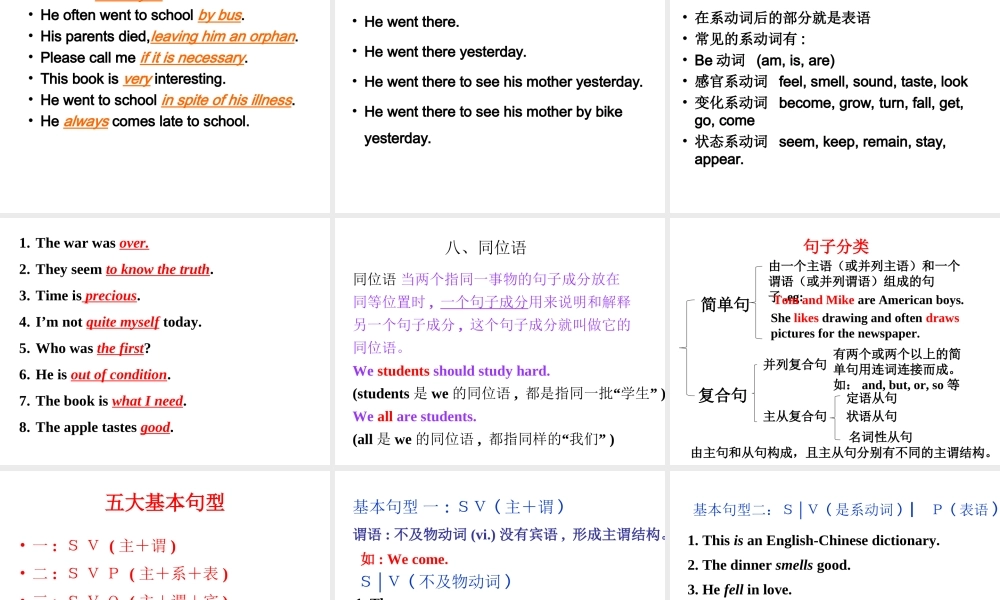句子的构成句子的构成英语的词性: 名词 (nouns) n. 代词 (pronoun) pron.实词 数词 (numeral) num. 形容词 (adjective) adj. 或 a. 副词 (adverb) adv. 动词 (verb) v 冠词 (article) art虚词 介词 (preposition) prep. 连词 (conjunction) conj. 助词 (auxiliary) aux.句子成分• 主语 subject• 谓语 predicate• 宾语 object• 宾补 complement• 定语 attribute• 状语 adverbial (时间,地点,原因……)• 同位语 appositive• 表语 predicative1. I met my best friend Tom at the station yesterday.↓主语↓谓语↓定语↓宾语↓同位语↓状语㈠主语• Jane is good at playing the piano.• She went out in a hurry.• Four plus four is eight.• To see is to believe.• Smoking is bad for health.• The young should respect the old.• What he has said is true.主语 : 可以作主语的成分有名词 , 主格代词 ,动词不定式 , 动名词等等。主语一般在句首。名词主格代词数词动词不定式动名词the + 形容词句子㈡谓语• 谓语 : 简单谓语由动词或动词词组构成 , 一般在主语之后。• I saw the flag on the top of the hill?• He looked after two orphans.• 复合谓语 由情态动词或助动词 + 动词 ;• He can speak English well. • She has finished the homework. • 1. The sun rose. • 2. Who cares? • 3. What he said does not matter. • 4. They talked for half an hour.• 5. Who knows the answer? • 6. He has refused to help them. • 7. He enjoys reading. • 8. He said "Good morning." ●I like my job.●I love you.●He wanted to leave here.●They enjoyed playing computer games.●He asked where he was.(三)宾语宾语:动作的接受者,一般在谓语后面• 宾语分为直接宾语和间接宾语 . 直接宾语指物 , 间接宾语指人 .• He gave me some books.↓间接宾语↓直接宾语●Please pass me the book.●He bought me some flowers.( 四 ) 宾语补足语• 宾语补足语 : 位于宾语之后对宾语作出说明的成分。• I found the book interesting.• Do you he...




